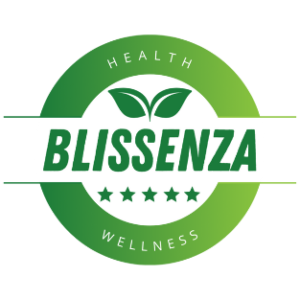Discover how this popular beverage interacts with common diseases and how beneficial or dangerous your daily habit may be.
Coffee, a beverage adored worldwide, is much more than just a morning stimulant, in recent years, intense research has focused on how coffee affects our health, especially in relation to certain diseases. But how safe is your daily coffee? Could it be helping you or, on the contrary, worsening certain health conditions? In this article, we explore coffee’s complex interactions with various diseases, from the heart to the brain.
Coffee and Cardiovascular Health
The heart is one of the most important organs in our body, and anything that affects it deserves special attention. Coffee has been the subject of many studies related to cardiovascular health, and the results may seem contradictory.
Potential Benefits
Some studies suggest that moderate coffee consumption 3 to 5 cups a day has been shown to reduce the risk of cardiovascular disease by 15% (1), this is due to the antioxidants present in coffee, which can protect the heart by reducing inflammation and improving blood vessel function, as well as helping reduce oxidative stress in your body (2)(3).

Are There Potential Risks?
However, for some people who suffer from hypertension, it can be concerning to think that coffee might have a negative effect on their health. It is widely said that caffeine can temporarily raise blood pressure, which is true, but by how much?
A review of 34 studies revealed that consuming between 200 and 300 mg of caffeine from coffee (equivalent to approximately 1.5 to 2 cups) caused an average increase of 8 mm Hg in systolic blood pressure and 6 mm Hg in diastolic blood pressure (4).
As we can see, coffee can cause a temporary rise in blood pressure immediately after drinking it, but this effect tends to be short-lived and doesn’t persist in the long term. For people with high blood pressure, current research indicates that daily coffee consumption likely doesn’t have a significant effect on their blood pressure or significantly increase the risk of heart disease, therefore, the key here is moderation.
Remember that even water in excess is harmful, so if you drink too much coffee, it can raise your blood pressure more and cause sleep problems and heart palpitations.
IMPORTANT: If you have severe hypertension, limit your intake to one cup of coffee a day or switch to green tea. A recent study revealed that people with extremely high blood pressure who consume two or more cups of caffeinated coffee a day could double their risk of dying from a heart attack, stroke, or other cardiovascular diseases. However, this risk was not observed in those who drink just one cup of coffee or consume green tea (5).
Coffee and Type 2 Diabetes
The relationship between coffee and type 2 diabetes is a fascinating area of study. At first glance, it might seem that coffee, with its caffeine content, could be harmful to blood sugar control, but the reality is more complex.
Risk Reduction:
Several studies have found that regular consumption of both caffeinated and decaffeinated coffee is associated with a lower risk of developing type 2 diabetes (6). This is because, according to one study, coffee seems to protect the beta cells in the pancreas (7), which are responsible for producing insulin. As you know, insulin is a key hormone in controlling blood sugar.
When these beta cells function properly, the body can regulate sugar better, which decreases the risk of developing diabetes.
Note: To reap this benefit, it is recommended to drink coffee without sugar and choose beans roasted without added sugar. We mention this because, in some regions, it is common to add sugar during roasting, which can negate this positive effect.
Coffee and Cancer: Friend or Foe?
Cancer is another area where coffee has been the subject of significant scrutiny. With so many pesticides and other chemicals sprayed on coffee plantations today, it’s no surprise that there’s concern about its long-term effects.
Despite this, some studies suggest that coffee may have anticancer properties. For example, coffee has been shown to reduce the risk of cancers like liver and colon cancer (8)(9). The antioxidants in coffee also play a crucial role in combating cellular damage and reducing inflammation.

However, as with any food or drink, context matters. There are studies that indicate that the temperature at which coffee is consumed is a critical factor. Drinking extremely hot coffee has been linked to an increased risk of esophageal cancer (10)(11).
However, these studies were based on limited evidence and did not find a clear and consistent connection between drinking hot beverages and esophageal cancer. Furthermore, it has not been proven whether this potential link is separate from alcohol and tobacco consumption, which are known risk factors for cancer.
Coffee and Neurodegenerative Disorders
This is where coffee really shines in terms of potential benefits. Research suggests that coffee could be a powerful tool in the fight against neurodegenerative diseases like Alzheimer’s and Parkinson’s (12)(13)(14).
Benefits in the Short and Long Term:
In the short term, coffee can improve your mood, keep you more alert, help you learn better, and make you react faster. Long term, coffee may help protect your brain from diseases like Alzheimer’s and Parkinson’s. Although some studies cannot prove that coffee is the direct cause of these benefits, they do affirm that coffee is good for brain health.
Again, drinking coffee without sugar is the best option. If you like to drink several cups of coffee a day and always have it with sugar because you like it sweet, you should know that high sugar consumption and elevated blood sugar levels increase the risk of developing Alzheimer’s or other forms of dementia (15)(16). This is because excess sugar can cause inflammation in the body, which is linked to many chronic diseases, including Alzheimer’s (17).
Coffee seems to have a protective effect on the brain. Studies have found that regular coffee drinkers have a lower risk of developing Alzheimer’s and Parkinson’s. Caffeine, along with other compounds in coffee, can protect brain cells and reduce the buildup of amyloid plaques, a hallmark of Alzheimer’s (18).
Make the most of coffee’s benefits and reduce or avoid adding sugar or artificial sweeteners, which are even worse.
Coffee and Digestive Health
For some, coffee is a digestive stimulant, while for others, it can be a source of gastrointestinal problems.
Coffee helps digestion in several ways (19). First, it stimulates acid production in the stomach, which helps break down food. It also influences bile and pancreatic secretions, which are important fluids for digesting fats and proteins.
Additionally, coffee can increase colon motility, meaning it can help move waste through the intestines more quickly, facilitating the digestive process, something particularly beneficial for people suffering from constipation.
Possible Problems:
On the other hand, coffee can also irritate the stomach and exacerbate issues like acid reflux. People with chronic digestive problems may need to moderate their consumption or avoid it altogether.
Conclusion
Coffee, like many things in life, isn’t inherently good or bad, it’s all about how you consume it. While research shows coffee offers a wide range of potential health benefits, from protecting your heart and brain to reducing the risk of diabetes and certain cancers, it can also have adverse effects, especially if consumed in excess or in individuals with specific health conditions, such as hypertension or digestive issues.
The key takeaway? Mindful consumption is essential, enjoy coffee in moderation, paying attention to how your body reacts and opt for black coffee without added sugars or artificial sweeteners to maximize its health benefits.
If you have any underlying health concerns like heart disease, high blood pressure, or digestive problems, it’s important to consult your doctor about how coffee fits into your diet.
Taking these steps ensures you can enjoy your daily cup while protecting your health for the long term.

